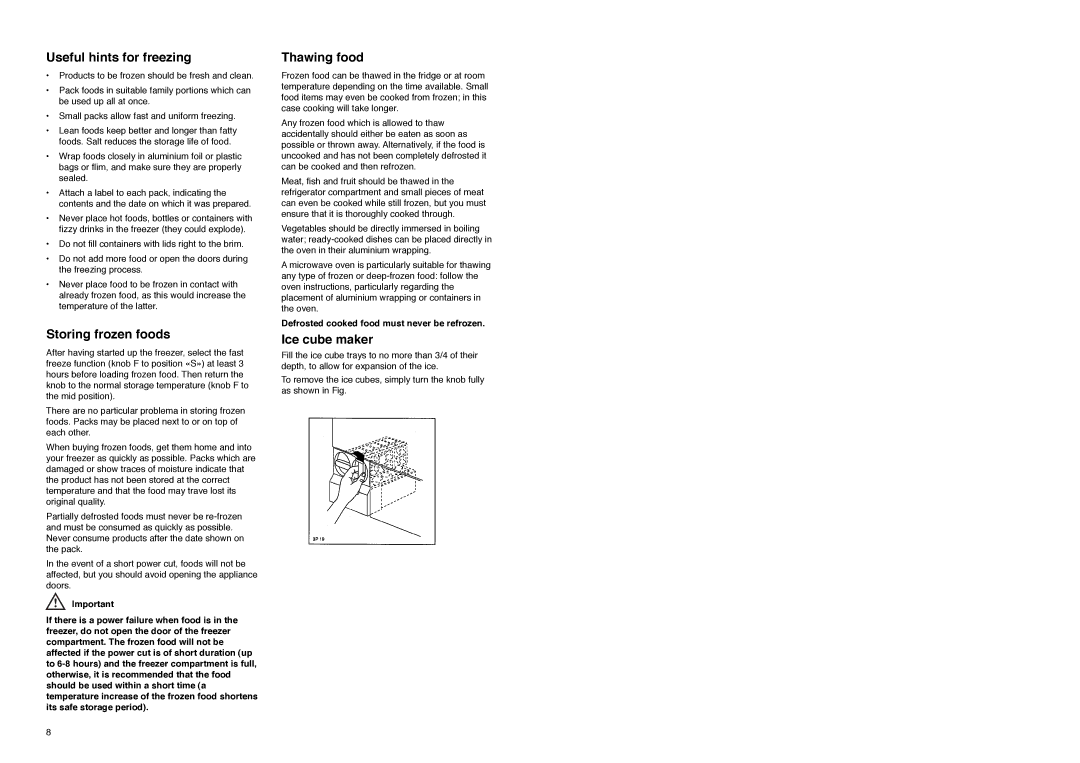
Useful hints for freezing
¥Products to be frozen should be fresh and clean.
¥Pack foods in suitable family portions which can be used up all at once.
¥Small packs allow fast and uniform freezing.
¥Lean foods keep better and longer than fatty foods. Salt reduces the storage life of food.
¥Wrap foods closely in aluminium foil or plastic bags or flim, and make sure they are properly sealed.
¥Attach a label to each pack, indicating the contents and the date on which it was prepared.
¥Never place hot foods, bottles or containers with fizzy drinks in the freezer (they could explode).
¥Do not fill containers with lids right to the brim.
¥Do not add more food or open the doors during the freezing process.
¥Never place food to be frozen in contact with already frozen food, as this would increase the temperature of the latter.
Storing frozen foods
After having started up the freezer, select the fast freeze function (knob F to position ÇSÈ) at least 3 hours before loading frozen food. Then return the knob to the normal storage temperature (knob F to the mid position).
There are no particular problema in storing frozen foods. Packs may be placed next to or on top of each other.
When buying frozen foods, get them home and into your freezer as quickly as possible. Packs which are damaged or show traces of moisture indicate that the product has not been stored at the correct temperature and that the food may trave lost its original quality.
Partially defrosted foods must never be
In the event of a short power cut, foods will not be affected, but you should avoid opening the appliance doors.
Important
If there is a power failure when food is in the freezer, do not open the door of the freezer compartment. The frozen food will not be affected if the power cut is of short duration (up to
Thawing food
Frozen food can be thawed in the fridge or at room temperature depending on the time available. Small food items may even be cooked from frozen; in this case cooking will take longer.
Any frozen food which is allowed to thaw accidentally should either be eaten as soon as possible or thrown away. Alternatively, if the food is uncooked and has not been completely defrosted it can be cooked and then refrozen.
Meat, fish and fruit should be thawed in the refrigerator compartment and small pieces of meat can even be cooked while still frozen, but you must ensure that it is thoroughly cooked through.
Vegetables should be directly immersed in boiling water;
A microwave oven is particularly suitable for thawing any type of frozen or
Defrosted cooked food must never be refrozen.
Ice cube maker
Fill the ice cube trays to no more than 3/4 of their depth, to allow for expansion of the ice.
To remove the ice cubes, simply turn the knob fully as shown in Fig.
8
